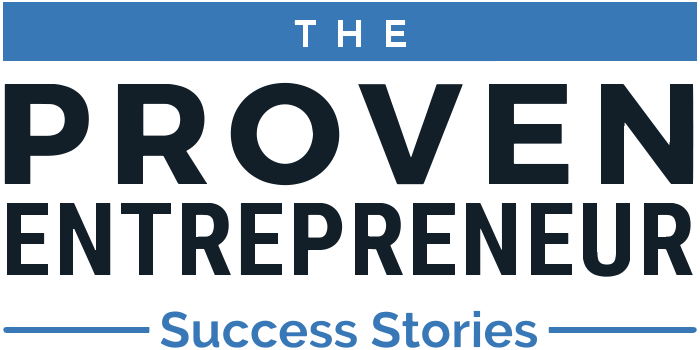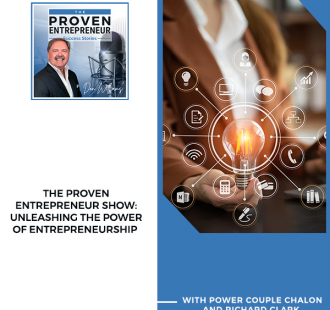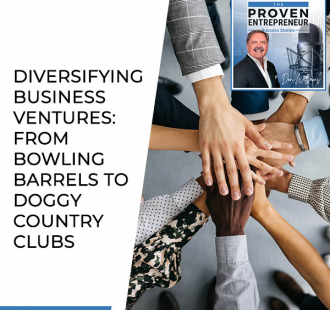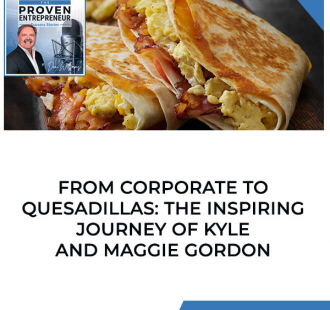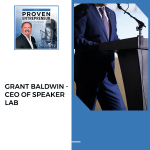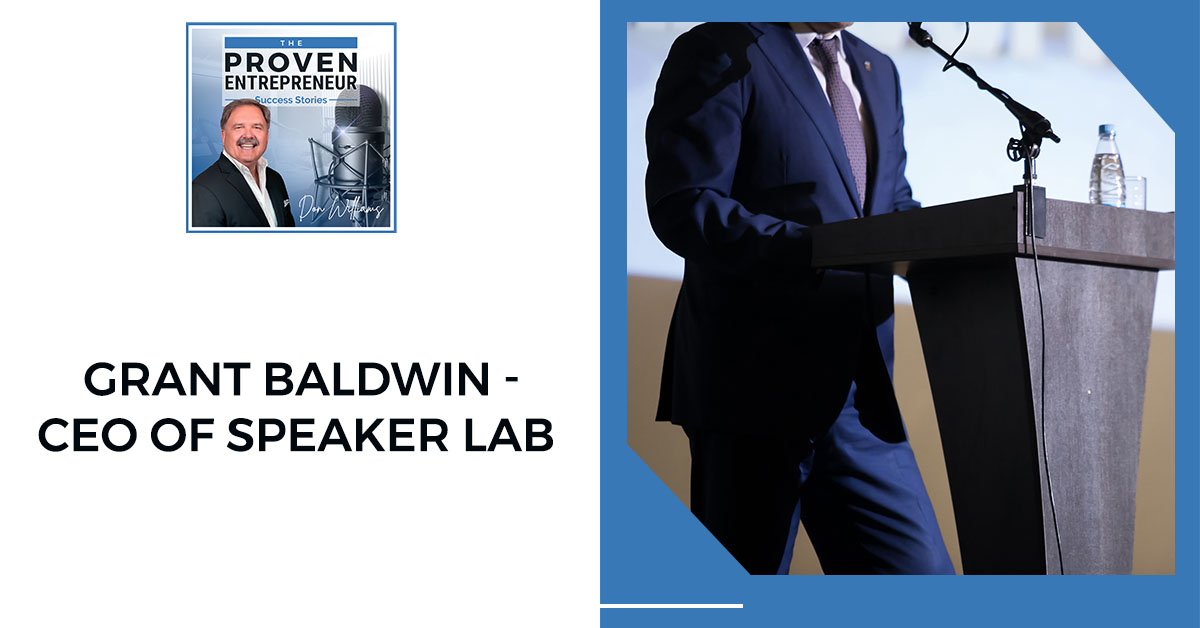
Public speaking gigs are one of the best lead generation strategies for businesses of any niche or model. Grant Baldwin has a deep love for the art of speaking, and he has created a platform where he could train aspiring speakers. Joining Don Williams, he talks about the story behind his coaching and training company for speakers, The Speaker Labs. He explains the importance of hiring good people and being intentional with culture in a physical or a virtual environment. Grant also shares valuable entrepreneurship lessons he learned from his father and his inspiring transition from a youth pastor to a professional speaker.
For information on how to work with Don visit Work With Don Williams
You can also reach out to Don Williams at https://donwilliamsglobal.com
Please join Don and his businesses in support of St. Jude’s Children Research Hospital in its Mission to cure Childhood Cancers. You can donate to St. Jude at stjude.org/donate
—
Watch the episode here
Grant Baldwin – CEO Of Speaker Lab
Youth Pastor To Professional Speaker To Entrepreneur
In this episode, I have got a phenomenal entrepreneur with us. I’ve got Grant Baldwin who’s the CEO of The Speaker Lab. He helps people get speaking gigs. There is nothing quite like lead generation than speaking. I’m so excited to have Grant here. Welcome to the show, Grant.
Don, thanks for letting me hang out with you. I appreciate it.
Thank you for coming and playing for a while. Tell us what The Speaker Lab is from A to Z.
The Speaker Lab is a coaching and training company for speakers and those interested in speaking. The quick nutshell on my background is I was a full-time speaker for about a decade or so and then had a lot of people asking me, “I want to be a speaker. How do I do that?” When I got started, there weren’t any podcasts, resources, coaching or training. I found myself emailing other speakers, harassing them and pestering them, “Can I pick your brain?” I was stalking them until I figured out some answers.
The Speaker Lab is a large part of what I wish I had when I got started as a speaker. When I got started, I felt like I had the potential but I needed the plan. There are a lot of speakers that we work with who are brand new. They don’t know what they don’t know. They’ve done some speaking before here or there but never been paid for it or maybe they’ve been paid a time or two. There are also speakers here doing it a lot and doing 20 to 30 paid gigs a year. They’re going, “I want to get to 40 or 50. I want to charge higher fees and get to bigger audiences. I don’t know what to do.” Wherever you’re at in your speaking journey, that’s whom we work with.
I’ve probably been speaking for 6 or 7 years. I wrote a book first and then we were stalking people and seeing if we could talk about the book. It was interesting to me. One of the very first gigs I had was the Global Gaming Expo, which had 25,000 casino executives from around the world. I’m with Grant. Stalk away. You never know what you might find. You’re in the Nashville area. Let me take you back to young Grant from ages 5 to maybe 18 in your home, whatever that looked like. People have all kinds of different childhood homes. Was there someone in your home who was an entrepreneur and set that entrepreneurial example for you?
A little bit. I have a good relationship with my parents. My parents split up when I was probably 12, 13 or something like that. I was in eighth grade. My dad was a bit of an entrepreneur. He had more of a traditional corporate job for a while and then did his thing for a good chunk of probably the second half of his career. That was my high school years and beyond. I remember him working from home, having some freedom and flexibility.
My mom worked in the hospital world pretty much her entire career. I’m the oldest of three. I got two younger siblings. My siblings and I have always been pretty entrepreneurial. She’s always been like, “Where did this come from? I wish I’d gotten into some of this stuff when I was your age.” In some ways, maybe I saw some of that from my dad but in other ways, I felt like I was always pretty entrepreneurial. I was the kid that was mowing lawns around the neighborhood, shoveling snow and doing anything I could do to make a buck. I always enjoyed that in trying to figure that out and what did that look like.
Not to get too far ahead but I was speaking full-time and got to a point where I was bored and restless. I was hanging out with a friend and mentor. He gave me some good advice. He said, “You want to regularly find things where the challenge exceeds the skillset.” When I first started speaking, the challenge exceeded my skillset. I felt like I was way over my head. What happens is over time, it flips and the skillset exceeds the challenge.
When I first started speaking, I felt like I was way over my head. What happens is over time, I could speak to 1,000 people, be on autopilot and do a great job but be bored internally. He said, “You have to regularly find things where that challenge exceeds the skillset.” The other thing he said to me that stood out to me was, “Some people are born to be speakers and they will be speakers their entire life.” He was that guy. He has been speaking for decades. He will perform his funeral. The guy loves speaking.
For me, he said, “You are an entrepreneur who happens to be a good speaker.” That resonated with me because going back, I’ve always enjoyed entrepreneurship. I remember even early in high school doing some paper in some class about entrepreneurship. I could barely spell it but I was fascinated by entrepreneurs and entrepreneurship. It was something that I was always wanting to do. Speaking has been a gateway for that.
I agree. Some people are wired to be speakers. I know a guy out of Detroit. He does 200 days a year. If he could figure out how to do 250, he would. He shared a story with me one time where he did 4 gigs in 4 cities on the same day and because of the way he bills his travel, he collected for travel. He hired a private jet. It was the only way to get it done. You’re like, “I’m in awe.”
Thank you for sharing that about your childhood. It’s interesting to me. We’ve interviewed 150 proven entrepreneurs for the show. About half had an entrepreneurial example and half didn’t. They were nature versus nurture. It sounds to me like you were a hustler as a kid. You had side hustles. You were mowing yards up and down the street. Tell me your first job or first entrepreneurial gig where you collected dollars or got paid.
It probably was mowing yards. I’d mowed 5 to 10 around the neighborhood. I was doing a push mower forever. It finally broke down and I got a riding mower. That was super fun where you’d go mow for whatever, ride around on a tractor and make $20, $10 or whatever it was then. I enjoyed that process. I remember during high school, one of my favorite days of the year was a snow day. It was where the school would be canceled. You’d be out of school, which is always a win.
I and another friend would go over to some rich neighborhood. We’d go door to door and shovel driveways. We’d come home with our pockets filled with $5s, $10s and $20s and felt like a billion dollars for a couple of teenage boys. I always enjoyed working hard. That was something that both my parents have done well and been great examples of. They both worked hard. That’s something I’ve tried to instill in my own kids. Mom and dad have a great life but it’s because we’ve worked hard to get that. We haven’t the lottery and we haven’t gotten any handouts. We don’t have any inheritance. We’ve worked hard and been intentional about creating the life that we have.
It’s like the George Foreman doctrine. He tells his kids, “I’m rich. You’re not.” You’re like, “That’s clear communication, isn’t it?” I love that. That’s young Grant. When you graduated high school, did you backpack across Europe, join the Merchant Marine or the Peace Corps or go to university? What’d you do?
I went to Bible college. In high school, I was involved in my local church. My youth pastor had a big impact on my life. I was like, “I want to do that. That seems like a cool gig.” That was the path I was on. I went to Bible college and then worked at a different church for a little while. Even in college, there was a guy I worked for a year or so who was a professional speaker. I helped him a little bit on the backend with travel, logistics, contracts and that sort of thing. I got to see, “This is a career path.”
Even as a youth pastor, there are parts of it I like and parts of it I didn’t like. One thing I enjoyed was speaking. I felt like I was decent at it. I was speaking on a weekly basis to students. I would speak a couple of weekends a year in a big church and be like, “This is fun. I would love to do more of this. I’d love to get paid to do this.” Speaking was one of those things that were work but at the same time, it was something I enjoyed. I felt like, to some degree, it came naturally and easily to me.
Youth pastors are farm from a senior pastor. Almost every senior pastor was a youth pastor at some point. Great pastors are typically pretty good speakers. That’s a tool for their trade. Tell me. Is your business your first business?
Yeah. I was a youth pastor and then decided to become a speaker. I was a speaker for about ten years or so and then started The Speaker Lab. I’ve been self-employed for several years. At The Speaker Lab, we have about 35 team members or so. I was telling them, “This is the biggest company I’ve ever worked for.” I never had a traditional career-type role. I’ve never been a part of a big company.
I said, “This is the most people I’ve ever worked with at a company.” Some of that was to tell them, “I’m doing my best. I’m figuring out as I go. I’m learning and making this up in many ways,” which is the reality of entrepreneurship for everybody. Every entrepreneur, we’re making it up as we go. We’re doing the best we can. Some days, you’re like, “This is good. Things are going well.” Other days, you’re like, “I have no idea what I’m doing. I have no idea how this is still held together with duct tape and chewing gum. Somehow, it’s working.” That’s the nature of entrepreneurship. It’s what we all signed up for.
Sometimes, you can have both feelings on the same day. It doesn’t seem to have to be different days. At 10:00 AM, you’re like, “I’m on top of the world,” and at 2:00 PM, it’s like, “We’re going off the cliff. I don’t know what’s going to happen.” That’s very interesting. Tell me. Do you still speak?
A little bit. It’s not nearly as much as I used to. When I started speaking, there was a friend of mine who was a speaker who gave me a good piece of advice. He said, “Speaking is a high-paying manual labor job. You get paid well to stand on stage and run your mouth but the nature of it is, you got to get on a plane, leave your family, go somewhere and show up.”

It’s like a surgeon. The surgeon makes good money performing surgery but the nature of their job is they have to perform surgery. If you wanted to take a couple of weeks off or a month off, shut down or whatever, things dry up quickly. That had always been in the back of my mind. Even when I got to a point where I was doing 60 to 70 paid speaking gigs a year, I was on the road 80 to 90 nights a year, I enjoyed it. It was a lot of fun. It wasn’t like, “This is miserable. This is awful. I hate it.” I always enjoyed it. At the same time, you’re like, “It’s a nice job,” but you reach a ceiling.
To make more as a speaker, you either need to do more dates, which I’m not trying to go from 70 to 200 or 250 or you go to a different industry where you can charge higher rates. That wasn’t super appealing. At the time, I had a lot of people who were asking me, “You’re a speaker. That’s cool. I want to do that. How would I do that?” I felt like I’d built some good systems and processes to understand the business of speaking.
There are a lot of people that teach the art of speaking. It’s about how you create and deliver a good talk, presentation skills and that sort of thing. I couldn’t find anyone who was doing anything related to the business. Who hires speakers? What do you speak about? How much do you charge? How does this work? We started doing some coaching and training around that and that started to take off. That’s where I saw some more potential of, “We could build a legitimate business here that’s not just me getting on stage, getting on a plane or that sort of thing.” I still do some occasional speaking but not nearly as much as I used to.

I know a lot of speakers and am a speaker. I always look at it as if I’m getting paid to travel. Speaking is not work for me. Give me a microphone and put me in front of 500 people. That’s fun but the not-fun part is going to the airport, getting on the plane and showing up a day ahead of time.
What I’ve told clients before, half joking and half serious is, “You don’t pay me to speak. You pay me to leave my family and that’s expensive.” That’s part of the gig. There are parts of travel that are non-glamorous and non-sexy. You wake up and you’re like, “What time zone am I in? What hotel is this?” I want to wake up in my bed. That’s way more enjoyable. I’ve been able to see a lot of the US that most people will never get to see in a lifetime. I’ve been fortunate to meet some amazing people and see some awesome places. It’s not a negative thing but travel can be very tiring for sure.
I enjoyed that piece because if I’m speaking in some cool place, we spend a week or two. If we go to Mexico City, we might as well spend a week. Tell me. What about hard lessons? It’s something that’s happened in your entrepreneurial path that, at the time, hurts but looking back and having a little distance, it turns out it was positive for you.
A couple of things come to mind. One would be when I very first started speaking. My wife and I were youth pastors at this church. My wife was 3 or 4 months pregnant with our first child. There’s nothing like bringing a kid into the world that causes you to question everything. You’re like, “What am I doing with my life?”
The church we were at wasn’t the healthiest of situations. It was a bit of a toxic environment. We ended up leaving that. For the next year, I was trying to figure out, “What am I doing with my life? What do I want to be when I grow up?” I have a lot of well-meaning and well-intentioned family members who are like, “You quit your job and your wife’s pregnant. Have you thought this through?” You’re like, “I thought I did but you raised some valid points of how we’re going to eat and live indoors.”
That year was difficult to think through, process and lick my wounds of figuring out, “What am I going to do?” I went to college to do this thing. I always anticipated doing this thing. I got into it and it wasn’t necessarily what I thought it was going to be. I’m interested in speaking but I don’t know anything about it. How do you build a business doing that? You got a newborn baby and there are a lot of the normal doubts and insecurities that go through your mind. That was the very first time I remember.
Fast forward, this happened multiple times where The Speaker Lab has grown as we’ve hired different people and different people have helped. We have a great group of people. Sometimes, you’ll have some people that are like, “We can’t function without this person.” I remember a couple of key team members leaving to go start their businesses or do something else. You’re like, “Everything’s going to fall apart.” You end up hiring someone that ends up being a better fit. It’s like, “I can’t imagine we could exist without this person.”
There are times as a business owner or as an entrepreneur when things are great. You’re on top of the mountain. There are also times when things feel like they’re falling apart. One thing I do a decent job at is I’m pretty even-keeled. The highs aren’t too high and the lows aren’t too low. If we have a bad day, I’m like, “That’s great. Let’s go to bed. Tomorrow’s going to be a new day.” If we have a great day, that’s awesome but that doesn’t guarantee squat for tomorrow and everything in between. That’s part of the roller coaster of entrepreneurship.
I remember talking with a friend. They were thinking about starting their business. We were talking about the nuts and bolts of walking and tackling being an entrepreneur. I said, “One of the biggest challenges is the mental game of the insecurities, the doubts, the fears, the worries, “Am I going to be able to make payroll? Can I pay me? Is this all going to come crumbling down at any moment?” It’s that mental weight. Those voices, for me, are still there but you learn how to manage that, control that and navigate that so it doesn’t become this all-encompassing thing that’s going to crush you or destroy you.
On the show, the most common question a guest has asked me or a comment that a guest has said is, “I’m not sure I’m a proven entrepreneur. I’m not sure I’m proven.” We’ve had multiple billionaire guests and it’s always the same question or statement. It’s like, “I’m not sure.” I’m like, “You’ve been doing it a long time. You’ve done a lot of stuff.”
The thing about entrepreneurship is it’s not all success. It’s realizing that failing is part of the success journey. It’s not the opposite of success. We’re not going to win at everything. Humans are funny. We’re like, “I think I’m right every time. When I’m presented with something, whatever my biased response is, I’m right.” We know that humans are wrong the majority of the time. It’s not just me but everybody.
Going back to the piece of advice I got from this friend where you want to find things where the challenge exceeds the skillset, that’s entrepreneurship. Every day, there’s some type of challenge. You may have some type of skillset but you feel like, “I’m over my head but I’m not entirely sure. I’m not drowning and dying but I’m pushing it.” That’s part of it.
For example, I like doing puzzles with my family. We finished a big 2,000-piece puzzle that took over the kitchen table. My wife was thrilled when we were done with it. She can have her table back. We’re working on it. It’s the challenge of like, “Let’s dump all the pieces out. I know these pieces go together somehow.” I know it’s going to take us a minute to figure it out but that’s part of the fun of it. In entrepreneurship, when you accomplish something, then it starts to expand your mind of what’s possible and helps you to continue to become better as an entrepreneur.
When I say, “This is the biggest company I’ve ever been a part of,” I’ve never led a team of this size. There are plenty of days when I feel out of my element but that’s also part of the fun of it. I wouldn’t have thought hiring the first employee that I could ever do that, let alone 30-something employees. The idea of going, “Could we ever have 50 or 100 employees,” seems crazy. There’s no way. I wouldn’t have thought we could have gotten to this point either.
I’ll give you one other analogy. I heard this before. It’s about life but it applies to entrepreneurship. Life is like driving a car at night. You can only see a few feet in front of you but you can drive for hundreds of miles that way. You can make an entire road trip. You have no idea about the roadblocks, the construction and the detour. You have no idea about that accident up there. You have no idea about that big pothole. You have no clue. You can only see a few feet in front of you. That’s the way life is and that’s certainly the way entrepreneurship is.
I have no idea what the rule holds. We have goals, plans, ambitions and that sort of thing but nobody saw a pandemic coming. Nobody has any idea what’s happening, let alone weeks or months from now. You can still make an entire journey that way. You can continue to move forward and figure it out as you go. That is the name of the game in entrepreneurship.
One thing I share with my clients is that our comfort zone is relatively defined. We like it because it’s comfortable there. What we know is when we step out of our comfort zone, our comfort zone grows. We step out of our comfort zone and our comfort zone, as with physics, grows again. The goal is to get out of your comfort zone as quickly and as often as you can to where you grow your ability and let it come in there. In a $10 million company, they’re fighting like, “Get $20 million. Everything will be good.” I’m like, “It’ll be $20 million good but it’ll also have 20 million challenges.”
The goal line keeps moving.
That’s part of the deal. It’s what you’re saying when you drive a little and you can see a little further. I love that. What about a warp-speed moment? Things are going pretty well in your company. You make a hire or a couple of decisions and all of a sudden, things take off.
One thing that that’s worked well for us is we’ve never had some major hockey sticks. It’s where we did this one thing and then everything changed. We’ve had significant growth year over year. We grew 70% in 2022 over 2021. We’ve been between 60% and 80% a year since the company started. We’ve had pretty significant growth in some ways but it also hasn’t been we did one thing and that changed the game. The thing that works well for us is hiring good people. It’s not something that nobody else has thought of or said but there is a massive amount of truth to that.
It’s giving them a lot of freedom, flexibility and autonomy. We are a virtual company in a large part because I want to work from home. Selfishly, I want to be around my wife and kids. I don’t want to babysit or micromanage people like, “Here’s what we hired you to do. Here’s what success looks like. We’ll stay in touch but I don’t want to breathe down your neck. Otherwise, there’s no point in you being here.” It’s hiring great people and getting out of the way.
Another thing is we’ve been intentional about our company culture. That’s a misconception that you can’t have a virtual company and have a healthy company culture because you’re not in the office, you’re not seeing each other and you don’t have water cooler conversations. We’ve been able to prove otherwise. We have an amazing company culture. People don’t leave. It has been years since we had a team member leave. People stay, drink the Kool-Aid and are all in. It’s being intentional about the company culture and trying to create the type of environment they want to be a part of for the long-term.
One thing I tell the team regularly is, “I want this to be the best place you ever work. I never want someone to feel like the grass is greener elsewhere.” I half-jokingly and half-seriously say, “I want to make it hard for you to leave.” It’s not in a manipulative way but I don’t want someone to feel like they’re always looking for their next thing or trying to figure out their next thing. They’re like, “The grass is not greener somewhere else. It’s great here. This is a great gig.” It’s being intentional about those things.
It’s also doing the same thing over an extended period. Keep showing up. It’s not like, “Grant did the speaking thing and then I got into manufacturing and did some retail business. I then was doing some Amazon FBA thing and then home service.” It’s like, “Grant’s still teaching people how to get booked and paid to speak.” It’s the same thing. You start to build up some momentum, a track record and some brand recognition in the marketplace and then people know you as the go-to person on that thing. It’s picking something, sticking with it, having good people and being intentional about culture are the things that have ultimately helped and perpetuated our growth.
When you talk about culture and hiring great people, it’s always the who. It’s never the what. It’s like, “Whom do we get to do this?” I’m going to put you in a time machine and take you back to twenty-year-old Grant. You can’t touch him. You can’t occupy the same space but you get about 60 or 120 seconds to share something with 20-year-old Grant that you know now that you wish you knew then. Maybe it would’ve sped you along your path or ironed out a couple of rough spots. What would you tell your 20-year-old self if you had 1 minute or 2?
I would tell him, “You’re okay. You’re going to be okay. It’s going to work out.” Early on, I had a lot of confidence in myself. I don’t feel like I was ever cocky or arrogant but I had confidence like, “I can do something with life. It’s not easy. I got to work at it but I can go somewhere.” I remember wanting to look into the magic crystal ball of, “How’s this all going to play out? Is it going to work out? I’m working hard and doing the right things but I can only see as far as the headlights would show me. I don’t know what it’s going to be like.” In many ways, it’s like, “You’re good. Keep showing up. Keep doing the work. It’s going to be all right. You’re going to be fine.” My wife and I were high school sweethearts. We celebrate our 21st wedding anniversary. We’ve been together for 26 years.
Keep showing up. Keep doing the work. Everything will be all right. Click To TweetCongratulations.
Thank you. I’d also say, “Marry that girl. Take care of her and things are going to be okay.”
Many entrepreneurs could be reminded, “It’s going to be okay. Don’t let the drama sweep you away.” Certainly, whom you choose as a mate is huge to what you do, your peace and the quality of your life. Tell me. What’s a poster child client for you? Define it for us so we know exactly what it is.
There are a lot of people that we work with who are in the early stages of their speaking business. One of the fun things about speaking is it’s not necessarily a one-size-fits-all. I talked about how I was doing 60 to 70 gigs and other people do 200 gigs. Some people may hear that and be like, “Sign me up. I want to do that. That sounds amazing.” Other people are like, “I’ve got other stuff going on but I’d love to do 5 gigs a year or 10 gigs a year. I don’t know. How do you find those? What do you speak about? Who hires you and how does it work?”
It’s speakers who especially are in those early stages and trying to get clear on, “Whom do I speak to? What do I speak about? What’s the problem I solve here? Is there even a market for this thing? Maybe I want to share my story but I’m not sure if this is something people would hire speakers to talk about. Can I get paid for this? I have an existing coaching or consulting business. How do I connect it back to that? Can I do that?”
It’s like, “How do I get started? I don’t know what I don’t know. All I know is I’ve done a little bit of speaking before. I’ve done some word-of-mouth stuff or referral. I spoke at a friend’s event. I did something for a buddy and it was fun. I want to do more of it. What do I do now?” We work with a lot of speakers who are in that spot and trying to figure out, “I’ve done some speaking. I want to do more speaking. Tell me what steps I need to take.”
If that fits you, I’m going to ask you to reach out to Grant or his team. How do we do that?
Everything we do is over at TheSpeakerLab.com. We got a podcast by the same name. Speaking about podcasts, we’ve got over 400 episodes there. There is a lot of great content and free resources to check out.
Grant, thank you so much for coming to the show. I’m grateful.
Thanks, Don.
That’s it for this episode. I’ll see you next time. Thanks.
Important Links
- The Speaker Lab
- Podcast – The Speaker Lab
About Grant Baldwin
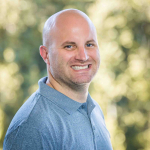 As founder and CEO of The Speaker Lab, Grant Baldwin has helped thousands of people build successful and sustainable speaking businesses. Over the last 15 years, Grant has become a sought-after speaker, podcaster, author, and accomplished entrepreneur. Featured on the Inc. 5000 list, Forbes, Inc. Entrepreneur, and The Huffington Post, he has committed his expertise and insight to equip others to share their meaningful message with the masses. His leadership and dedication to creating a one-of-a-kind organizational culture are evidenced by the impact of the team he leads.
As founder and CEO of The Speaker Lab, Grant Baldwin has helped thousands of people build successful and sustainable speaking businesses. Over the last 15 years, Grant has become a sought-after speaker, podcaster, author, and accomplished entrepreneur. Featured on the Inc. 5000 list, Forbes, Inc. Entrepreneur, and The Huffington Post, he has committed his expertise and insight to equip others to share their meaningful message with the masses. His leadership and dedication to creating a one-of-a-kind organizational culture are evidenced by the impact of the team he leads.
Grant lives near Nashville, Tennessee with his wife, Sheila, and their three daughters.
For more, visit thespeakerlab.com.
For information on how to work with Don visit Work With Donk Williams
You can also reach out to Don Williams at https://donwilliamsglobal.com
Please join Don and his businesses in support of St. Jude’s Children Research Hospital in its Mission to cure Childhood Cancers. You can donate to St. Jude at stjude.org/donate
